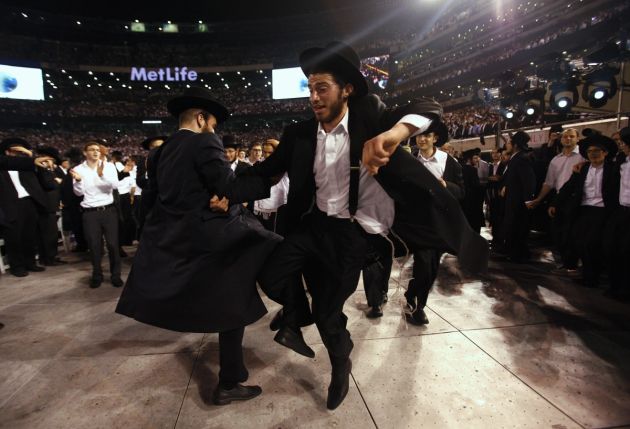Decline in numbers of religious followers worries some US Jews

Religious Jews in the United States are shrinking in numbers, a Pew Research Center survey has found and the statistic worries some followers of Judaism.
Jewish women consider religion to be more important than their male counterparts and an increasing number of Jews are marrying outside of their faith.
"People will be speaking for quite a while about the new Pew report on American Jews, and its depressing outlook for the future of any continuation of Jewish affiliation outside of [Jewish] Orthodoxy," Yitzchok Adlerstein wrote on the Jewish site mondoweiss.net, on October 2.
One-in-five Jews claim they are non-religious, specifically among the millennial generation, suggests the survey, published by Pew Research Center's Religion & Public Life Project on October 1.
"I don't know how to spin this report as being a good news story," Jack Wertheimer, a professor of American Jewish history at the Jewish Theological Seminary, who acted as an adviser to Pew on the study was quoted saying in the The Jewish Daily Forward on October 1. "It's a story of a community that's contracting."
A total of 48 percent of Jews aged 18-49 believe that religion is not at all important in their lives.
BEING JEWISH
Although, eight-in-ten Jews said being Jewish was either very important (46 percent) or somewhat important (34 percent) in their lives, more Jewish women than Jewish men consider religion important.
"Nearly a third of American Jews born after 2000 answered 'none' when asked about their religious affiliation, suggesting that Jewish 'nones' are not only a large group, they're growing," said Greg Smith, director of the religious surveys for the Pew Research Center.
"It's very stark," Alan Cooperman, deputy director of the Pew religion project, said in an interview. "Older Jews are Jews by religion. Younger Jews are Jews of no religion."
The rise of Jewish "nones" connects to the wider American population, where about a third of millennials don't affiliate with organized religion.
Even though many Jews are denying the importance of religion in their lives, seven-in-ten U.S. Jews believe in God or a universal spirit, including one-third who say they are "absolutely certain" about this belief.
Regarding Jewish traditions and practices, seven-in-ten Jews participated in celebrating the Passover holiday last year including 73 percent of young adults aged 18-29 while 55 percent of the same age group participated in Yom Kippur, the Day of Atonement.
More than half of Jews (58 percent) married between 2005-2013 took a spouse who was not Jewish. Overall, for Jews by religion, 64 percent have a Jewish spouse while 79 percent Jews of no religion are intermarried.
Pew Research qualifies these numbers by writing, "The relatively small size of the U.S. Jewish population should be taken into account.
MARITAL CHOICES
"If marital choices were purely random, the odds of one Jewish American marrying another Jewish American would be much smaller than the odds of one Protestant marrying another Protestant or one Catholic marrying another Catholic, since Protestants make up nearly half of the U.S. public and Catholics make up roughly a quarter of the overall population."
By wide margins, most Jewish people, religious and non-religious, align with the Democratic Party. This includes 75 percent of millennials and carries over into a 70 percent approval rating for President Barack Obama's performance.
However, there are small groups of conservatives and republicans between Orthodox and Ultra-Orthodox Jews.
On the issue of homosexuality, most Jews are strong supporters of gay rights.
This includes 80 percent of Jews by religion and 91 percent of Jews by no religion. For millennial Jews 89 percent support gay rights.
Overall, according to the survey, there has been a long-term decline in the Jewish population since the 1950s in the United States.
Jews by religion have lost members to religious switching, atheism, migration of Hispanic immigrants, intermarriage and mortality. Accordingly, there has been a rise in Jews of no religion. This aligns with the decline in all major U.S. religions.
The Pew Research Center conducted its survey between February 20 and June 23, 2013 with more than 70,000 U.S. Jews. In depth interviews were completed with 3,475 Jews.
According to the survey, less than 2 percent of the entire U.S. adult population is Jewish and those adults with Jewish ancestry or upbringing but no particular religion are now about 0.5 percent.